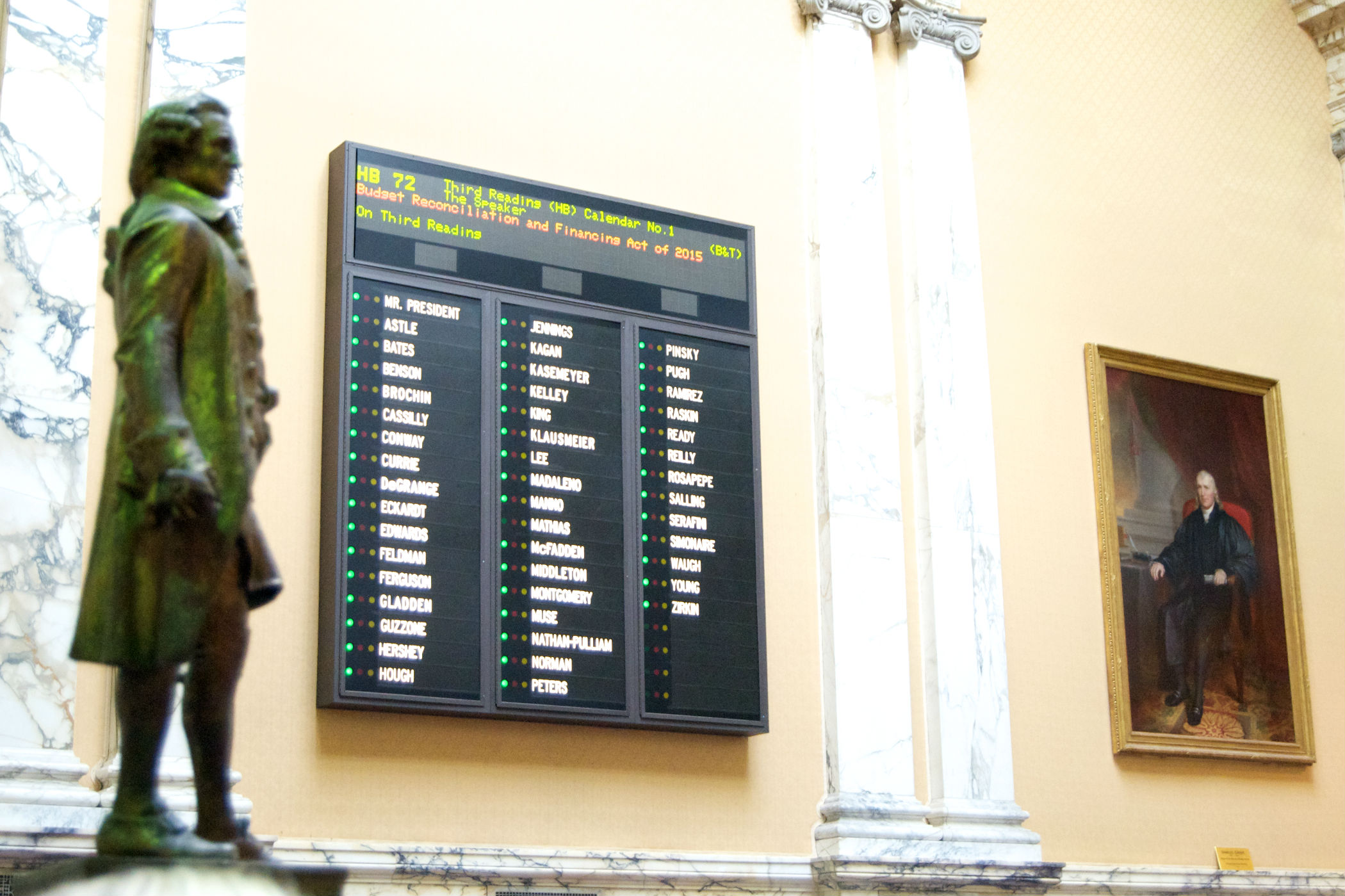By Len Lazarick
Len@MarylandReporter.com
Maryland continues to fall behind its goal of preserving a million of acres of farm and forest land by 2022, as open space funding declines and development pressures continue, state officials told legislators Tuesday.
“The quicker we move forward, the more we fall behind,” James Conrad, director of the state’s farmland preservation program, told the Joint Committee on Program Open Space and Agricultural Land Preservation. “It’s just going to get worse.”
Joe Tassone, director of land and water resource planning for the state, said, “We’re not on a good track to succeed in the long run in many parts of the state.”
Tassone said land preservation needs twice as much revenue and greater zoning controls by local jurisdictions to prevent piecemeal development that prevents putting together large parcels of preserved land.
“The revenue doubling is not going to happen any time soon, but the urgency is not going to go down,” Tassone said.
The state projects over the next 13 years it will fall short of its goal by 75,000 acres– an area about 1½ times the size of Baltimore City — and would need $40 million a year more to achieve it.
The purchase of open space and development rights to farmland is funded by taxes on real estate transfers, which help make Maryland’s closing costs some of the highest in the nation. These funds have fallen off as the housing market has struggled to recover from collapse.
During the housing boom from 2005 to 2008, transfer taxes were flowing. However, the development pressures were also boosting the cost of development rights to agricultural land from $2,800 per acre in 2005 to $6,791 in 2009, Conrad testified.
Now that the economy has fallen, the cost per acre has gone down slightly to $6,100 but the number of applications has gone up, he said. Under the program, a farmer continues to farm his land, but cannot sell it for development.
The continuing budget crunch has also made these funds attractive targets for lawmakers looking to fill deficits. Senate Republican Leader Allan Kittleman has repeatedly criticized the purchase of open space while other programs are cut. At an October event seeking more funding for the developmentally disabled, Kittleman said the state should not have bought “1,000 acres of Dorchester swampland” that was not going to be developed anyway. The purchase in question was approved by the Board of Public Works at its most recent meeting.
Sen. Thomas “Mac” Middleton, Democratic chairman of the open space committee and a Charles County farmer, said the open space and farmland funds should continue to be used for open space, especially since the land acquisition money has been cut at the Department of Natural Resources, which runs the state parks. Otherwise, he said the transfer tax passed 40 years ago to fund open space purchases is “just another tax.”
“During these tough times is when land is at its cheapest,” Middleton said. Under new guidelines, he said the state is targeting acquisition of “the most critically important land.”
Sen. George Edwards, from far western Maryland where the state owns 20 percent of the land, said, “If money comes from the transfer tax, that money ought to be spent for what it was supposed to be spent.”
On the other hand, Edwards, who also serves on the budget committee, said he recognizes the fiscal pressure.
“We’re going to have two more years of [budget] problems,” he said. “I don’t think anything should be off the table.”
Edwards favors freezing all state spending at current levels, and he suspects, Gov. Martin O’Malley will “probably have to freeze a lot of things.”
O’Malley throughout the 2006 campaign and afterward repeatedly said open space money should be used only for open space, criticizing Gov. Bob Ehrlich, his Republican predecessor, for using the funds to balance the operating budget.
But this year, O’Malley and the legislature transferred $70 million form Program Open Space into the general fund, and funded open space purchases with bonds.
Catherine Krikstan at Capital News Service provides other angles on Tuesday’s hearing.




Recent Comments